Welcome, curious explorers! Get ready to unravel the intricacies of Grenada’s political system, where history, democracy, and lively discussions converge.
As part of the British Commonwealth, Grenada embraces a parliamentary representative democratic monarchy. There is no reason to be concerned, even though the Queen of England holds the honorific title of head of state, because a locally elected government oversees daily operations.
With a charming blend of executive, legislative, and judicial branches, Grenada’s political landscape comes to life through its vibrant elections and engaging debates. Join us on this enlightening journey through Grenada’s ever-evolving political tapestry, where traditional parties and emerging voices shape the destiny of this captivating island nation.
TypeParliamentary democracy
Head of StateMonarch of the United Kingdom
Head of GovernmentPrime Minister
Independence1974
LegislatureBicameral
Lower HouseHouse of Representatives
Upper HouseSenate
JudiciaryIndependent
Highest CourtEastern Caribbean Supreme Court
Final AppealCaribbean Court of Justice
Whether you’re a political enthusiast or simply intrigued by Grenada’s democratic spirit, this guide promises to be your gateway to understanding it all!
Government Structure
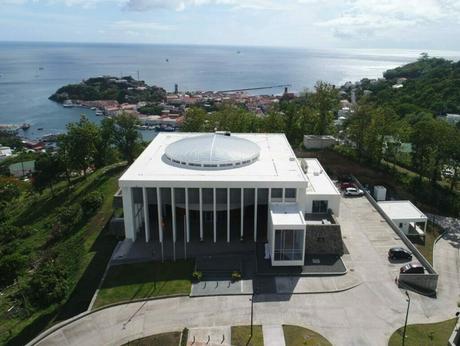
The political framework of Grenada is a parliamentary representative democratic monarchy, a remnant of its historical ties to the British Commonwealth. This indicates that the Governor-General, who represents the Queen of England on the island, is the head of state. However, the daily administration of the country is under the control of the elected government.
The executive, legislative, and judicial branches make up the Grenadian government. The Governor-General selects the Prime Minister, who serves as the head of state, from the party with the most representatives in the House of Representatives. The executive branch is comprised of the Queen, the Governor-General, the Prime Minister, and the Cabinet.
The Senate and the House of Representatives make up Grenada’s bicameral parliament. The 13-member Senate is comprised of ten senators chosen by the governor general and three by the leader of the opposition. The House of Representatives, in contrast, is made up of 15 people who were elected by the general public to serve terms of five years.
The judicial system of Grenada is based on English common law. The Eastern Caribbean Supreme Court (ECSC) is the superior court of record, catering to both Grenada and other member states. For final appellate jurisdiction, Grenadians can appeal to the Privy Council in the United Kingdom.
Political Parties
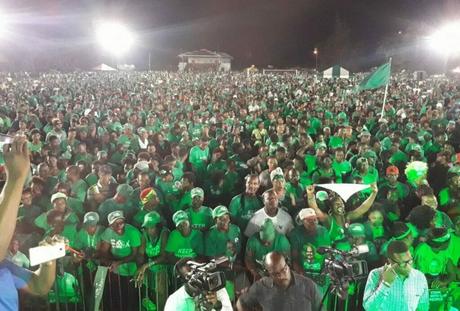
The two major political parties in Grenada, the New National Party (NNP) and the National Democratic Congress (NDC), have historically dominated politics. Historically, the right-wing NNP has supported pro-business policies and tighter connections with the US. In contrast, the NDC, a center-left party, has focused more on social welfare and non-alignment.
Smaller parties and independents have occasionally won seats in Parliament despite the two-party system. This reflects a growing desire among Grenadians for a wider range of voices in their government. However, the political landscape remains primarily a battlefield for the NNP and NDC.
Party loyalty in Grenada is strong, with many voters sticking to their party lines through multiple elections. This steadfast allegiance can often make Grenadian politics appear more like a contest of personalities rather than policies.
With political participation high, public debates and rallies are regular features of Grenadian life. The parties use these platforms to outline their policies, rally their supporters, and criticize their opponents.
Election Process
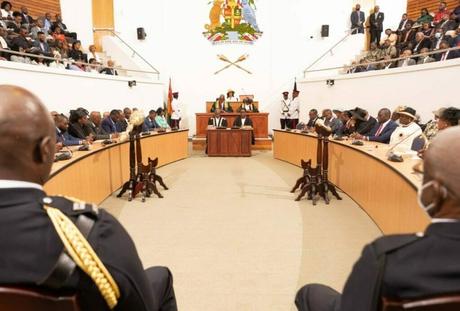
Grenada holds elections every five years, however the prime minister has the authority to call a special election at any moment. All citizens who are at least 18 years old are eligible to vote. The candidate who receives the most votes in each constituency wins under Grenada’s “first-past-the-post” type of voting.
The electoral process is overseen by the Parliamentary Elections Office. This independent body is responsible for maintaining the electoral roll, ensuring a fair voting process, and declaring the results. International observers often supervise elections to ensure transparency and fairness.
Political campaigns in Grenada are lively affairs, with rallies, marches, and public meetings common in the lead-up to polling day. Despite the high stakes, elections are generally peaceful, reflecting Grenada’s commitment to democratic values.
The most recent election saw an impressive voter turnout, demonstrating the Grenadian people’s active participation in the political process. This spirit of political engagement is a defining feature of Grenada’s vibrant democracy.
Current Political Landscape

The NNP, which has controlled Grenada’s political scene for the majority of the past two decades, is currently in charge. Their continued success is often attributed to their robust economic policies and charismatic leadership. However, some groups of the public are calling for change more and more.
The NDC, despite being the main opposition, has struggled to mount a serious challenge to the NNP. They will need to consolidate their support base and articulate a clear alternative vision for Grenada if they hope to change this in the future.
Meanwhile, newer political entities have emerged, aiming to challenge the established order. They represent a wide range of ideologies, from radical progressivism to conservative nationalism. It remains to be seen whether any of them can disrupt the NNP-NDC duopoly.
Overall, the political landscape of Grenada is evolving, with shifting alliances and emerging voices. While the future is uncertain, what remains clear is Grenada’s commitment to democratic governance and active political participation.
Political Parties and Ideological Landscape
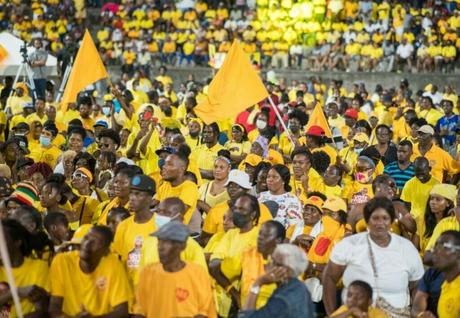
The New National Party (NNP) and the National Democratic Congress (NDC), each with a unique ideological slant, have largely controlled politics in Grenada. The NNP, a center-right party, traditionally leans towards free-market economic policies, foreign investment promotion, and strong alignment with Western allies, especially the United States.
The NDC, in contrast, places itself more frequently in the center-left of the political spectrum. The party’s philosophy revolves around social welfare, grassroots empowerment, environmental preservation, and balanced international relations. The NDC often stresses the importance of economic independence, social equality, and sustainable development.
Despite these two major players, the Grenadian political landscape is not limited to a binary choice. Over the years, various smaller parties and independent candidates have emerged, each presenting their unique policy orientations. This pluralism, albeit modest, offers Grenadian voters alternatives to the dominant NNP and NDC.
However, it’s essential to note that political ideologies in Grenada, as in many Caribbean nations, are not strictly dichotomous or fixed as one might observe in larger Western democracies. Context-specific issues such as local development, job creation, education, and healthcare often take precedence over rigid ideological commitments.
FAQ
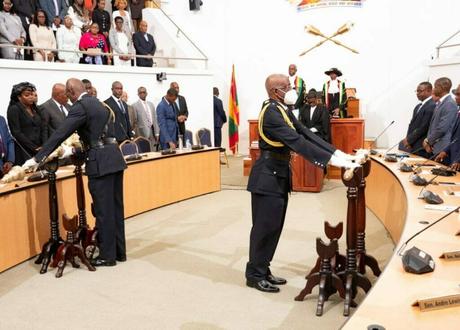
Political Status of Grenada?
Grenada is a parliamentary representative democratic monarchy within the British Commonwealth. The Governor-General represents the Queen of England, who is the island’s head of state. The elected government handles the day-to-day administration.
Current Issues in Grenada?
As of the latest available information, specific current issues in Grenada have not been provided. However, typical challenges faced by small island nations like Grenada may include sustainable development, economic diversification, environmental conservation, and social welfare.
Current Government in Power?
The New National Party (NNP), which has the majority of seats in Parliament, has been dominant in Grenadian politics as of the most recent information. The NNP’s center-right approach emphasizes free-market policies and strong alignment with the United States. Please keep in mind that political circumstances can change, therefore for the most recent information, you should always look to the most recent sources.

